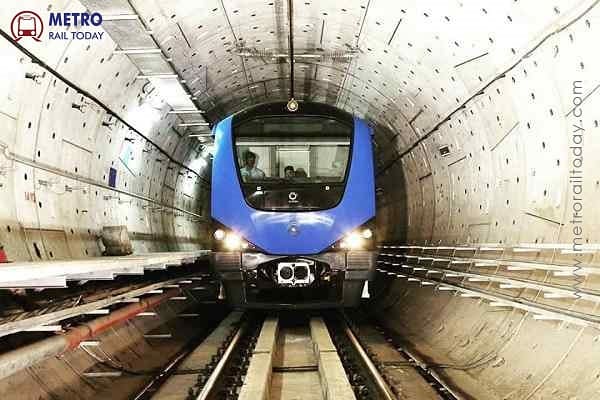 CMRL achieves second Tunnel Breakthrough at Thirumayilai for Chennai Metro Phase 2 Corridor 4
CMRL achieves second Tunnel Breakthrough at Thirumayilai for Chennai Metro Phase 2 Corridor 4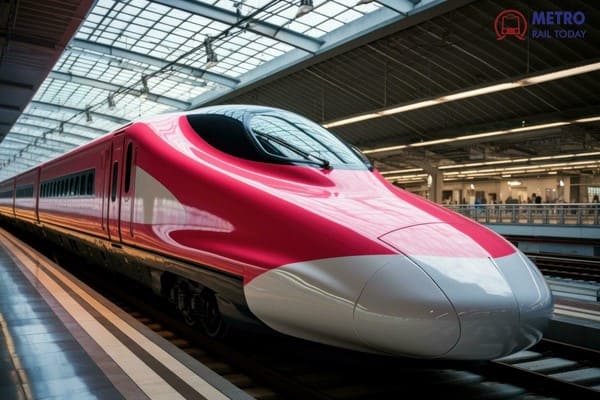 NHSRCL invites Single Tender from BEML for Bullet Train Rolling Stock Package
NHSRCL invites Single Tender from BEML for Bullet Train Rolling Stock Package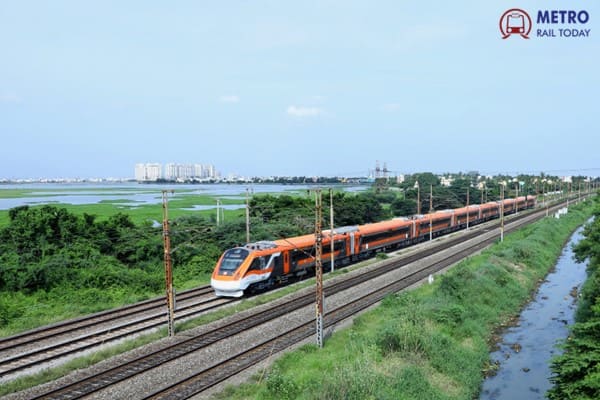 Railway Minister reviews progress of Ahmedabad–Dholera Semi High-Speed Rail Project
Railway Minister reviews progress of Ahmedabad–Dholera Semi High-Speed Rail Project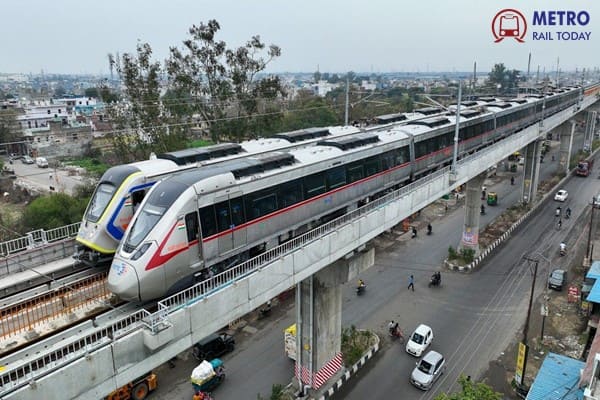 National Planning Group reviews key Rail & Metro projects under PM GatiShakti
National Planning Group reviews key Rail & Metro projects under PM GatiShakti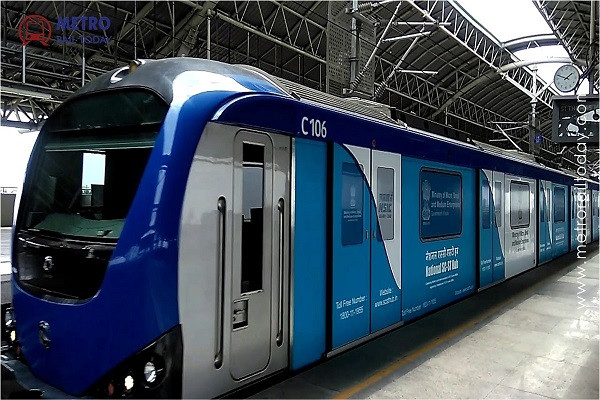 CMRS approves Driverless Metro Operations on first stretch of Chennai Metro Phase 2 Corridor 4
CMRS approves Driverless Metro Operations on first stretch of Chennai Metro Phase 2 Corridor 4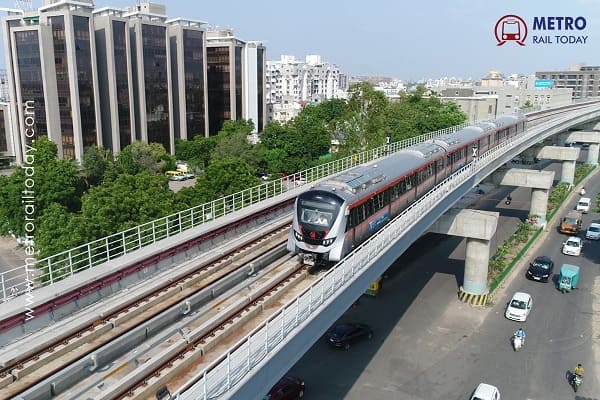 J Kumar Infraprojects completes Final Tunnel Breakthrough for Surat Metro Phase 1 Project
J Kumar Infraprojects completes Final Tunnel Breakthrough for Surat Metro Phase 1 Project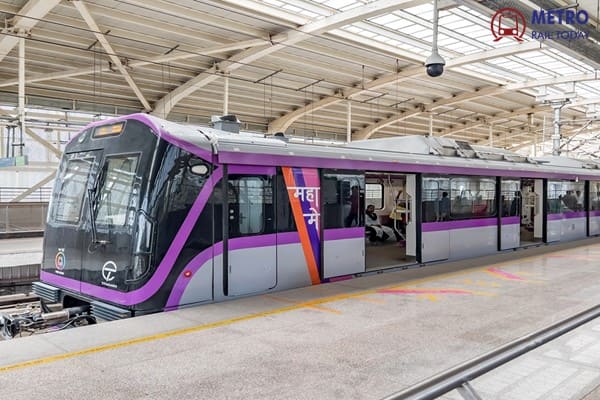 Apurvakriti Infrastructure awarded Ballastless Track Contract for Pune Metro Reach-1 Extension
Apurvakriti Infrastructure awarded Ballastless Track Contract for Pune Metro Reach-1 Extension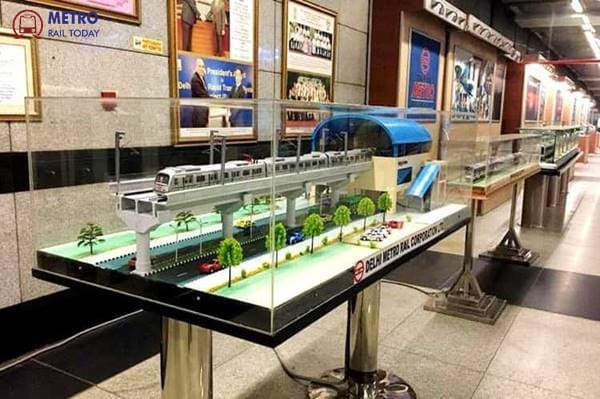 SAM India Builtwell bags first ₹222.76 Crore Civil Contract for Delhi Metro Phase V
SAM India Builtwell bags first ₹222.76 Crore Civil Contract for Delhi Metro Phase V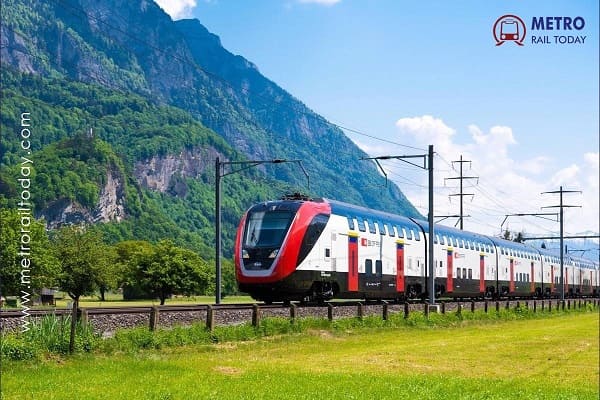 HRIDC conducts Investors Pre-Bid Meeting for Haryana Orbital Rail Corridor
HRIDC conducts Investors Pre-Bid Meeting for Haryana Orbital Rail Corridor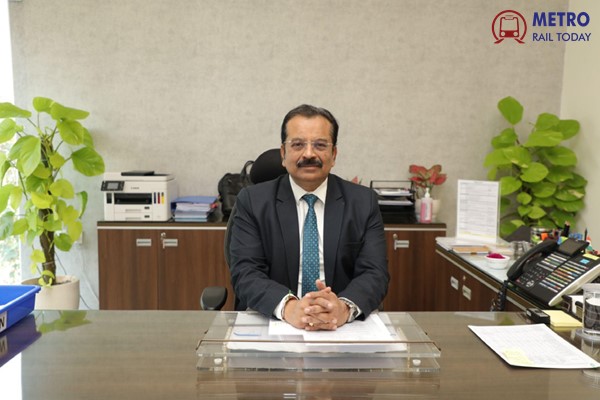 NCRTC Chief Shalabh Goel appointed as General Manager of Central Railway
NCRTC Chief Shalabh Goel appointed as General Manager of Central Railway
Delhi Metro to expand 450 km network by 2027, Take 10.9 lakh Vehicles Off Roads Daily by 2031
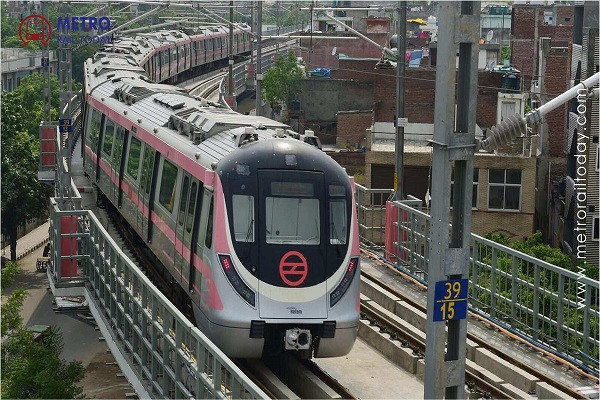
New Delhi, India (Metro Rail Today): A new study by The Energy and Resources Institute (TERI) has revealed that by 2031, the Delhi Metro Rail Corporation (DMRC) will help remove nearly 10.9 lakh vehicles from the capital’s congested roads every single day — a remarkable achievement that will significantly reduce fuel consumption, air pollution, and travel time across the National Capital Region (NCR).
According to the study, the Delhi Metro’s rapid expansion and growing ridership have made it one of the most impactful public transport systems in India’s climate and urban development goals.
The TERI report highlights the Delhi Metro’s growing influence on urban mobility:
-
2019: 4.74 lakh vehicles taken off the road daily
-
2021: 5.16 lakh vehicles
-
2031 (projected): 10.9 lakh vehicles
This massive shift toward public transport is expected to deliver fuel savings of over 5.34 lakh tonnes per year by 2031, up from 2.55 lakh tonnes in 2021, according to the DMRC.
The study also projects a significant reduction in pollutants, with 7.77 lakh tonnes cut in 2021 expected to more than double to 16.3 lakh tonnes by 2031. The environmental impact is comparable to removing millions of litres of fossil fuel emissions annually, providing Delhi with cleaner air and lower carbon intensity.
In addition to its environmental benefits, the metro’s efficiency continues to save time and boost productivity. Commuters collectively saved 269 million hours of travel time annually in 2021 — a number that will rise to 572 million hours by 2031, the study said.
Currently, Delhi Metro carries 6.5 to 7 million passengers daily, cementing its status as the lifeline of NCR.
The Delhi Metro has established itself as a global leader in sustainable transport, being the first metro system worldwide registered under the United Nations Clean Development Mechanism (CDM).
Through regenerative braking, solar energy generation, and modal shift initiatives, it continues to earn carbon credits while lowering emissions.
Key sustainability measures include:
-
50 MW rooftop solar capacity across stations and depots
-
345 million units of power annually from the Rewa Solar Project (Madhya Pradesh)
-
Rainwater harvesting at all stations and depots
-
Tree plantation drive (10 saplings for every tree removed)
Together, these initiatives supply 35% of DMRC’s total power requirement — a benchmark for other Indian metro systems.
Delhi Metro’s current operational network spans 395 km with 289 stations, running 336 trainsets in four, six, and eight-coach configurations.
Trains operate at intervals of under three minutes during peak hours, maintaining punctuality within 59 seconds — among the world’s best standards.
Non-farebox revenue from advertisements, property development, and consultancy services accounts for around 20% of total income.
The ongoing Phase IV expansion — covering 112 km at a cost of ₹39,580 crore — is progressing rapidly, backed by soft loans from the Japan International Cooperation Agency (JICA). Across all phases, JICA’s contribution has ranged from 38% to 57% of project costs, reflecting Japan’s long-standing partnership with Delhi Metro.
When complete, the total network length will expand to approximately 450 km by 2027, extending metro services deeper into NCR cities including Gurugram, Noida, Faridabad, and Ghaziabad.
“The TERI study once again underscores the Delhi Metro’s unparalleled contribution to urban sustainability and climate action,” said Mrs. Mamta Shah, MD & CEO of Urban Infra Group. “With cleaner energy, efficient operations, and forward-thinking policies, DMRC is not only transforming how Delhi moves but also setting a global example of sustainable urban transport.”
With Phase IV’s completion and continued investment in clean energy, Delhi Metro is set to lead India’s transition toward sustainable, integrated, and low-carbon public transport — making the capital’s commute faster, cleaner, and greener.




